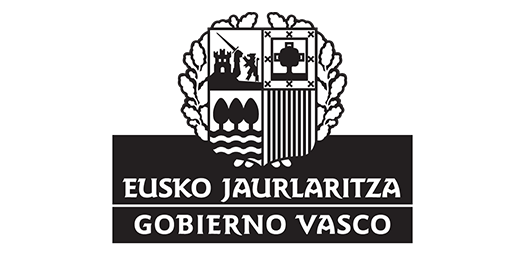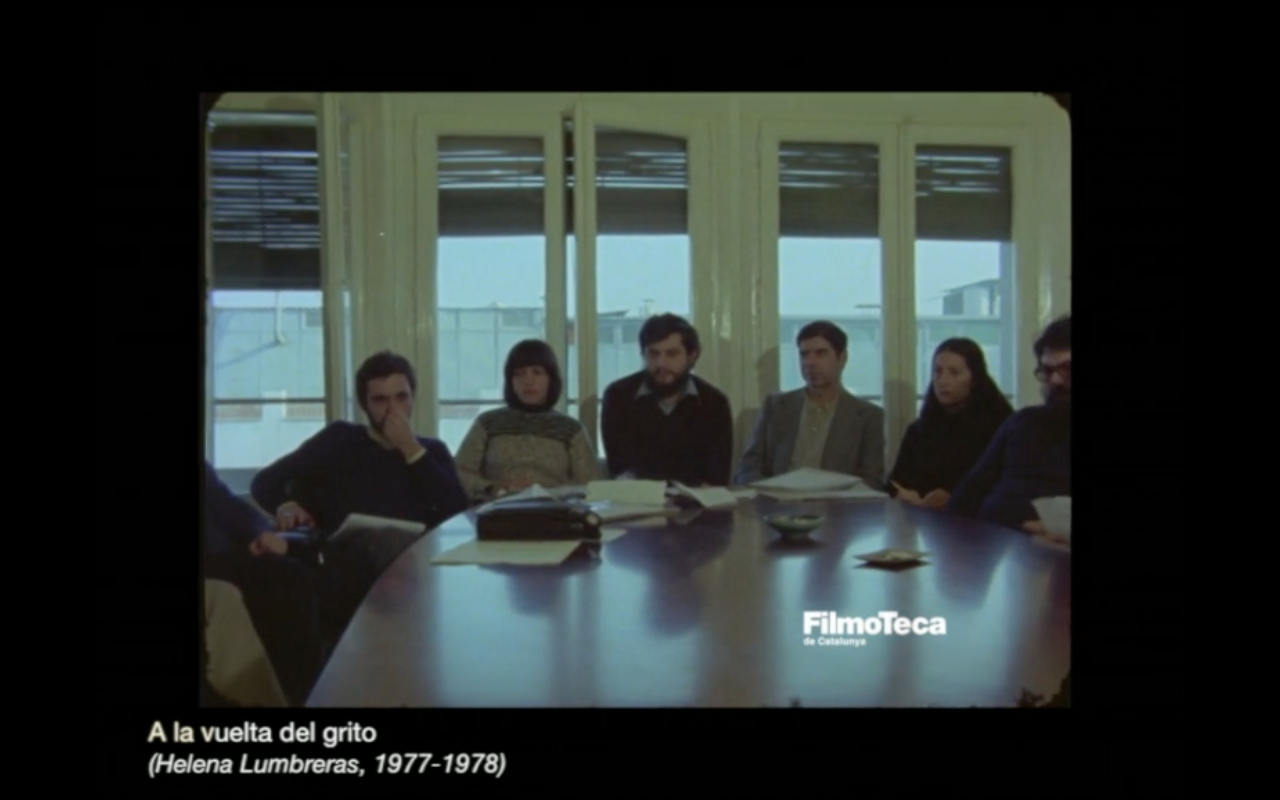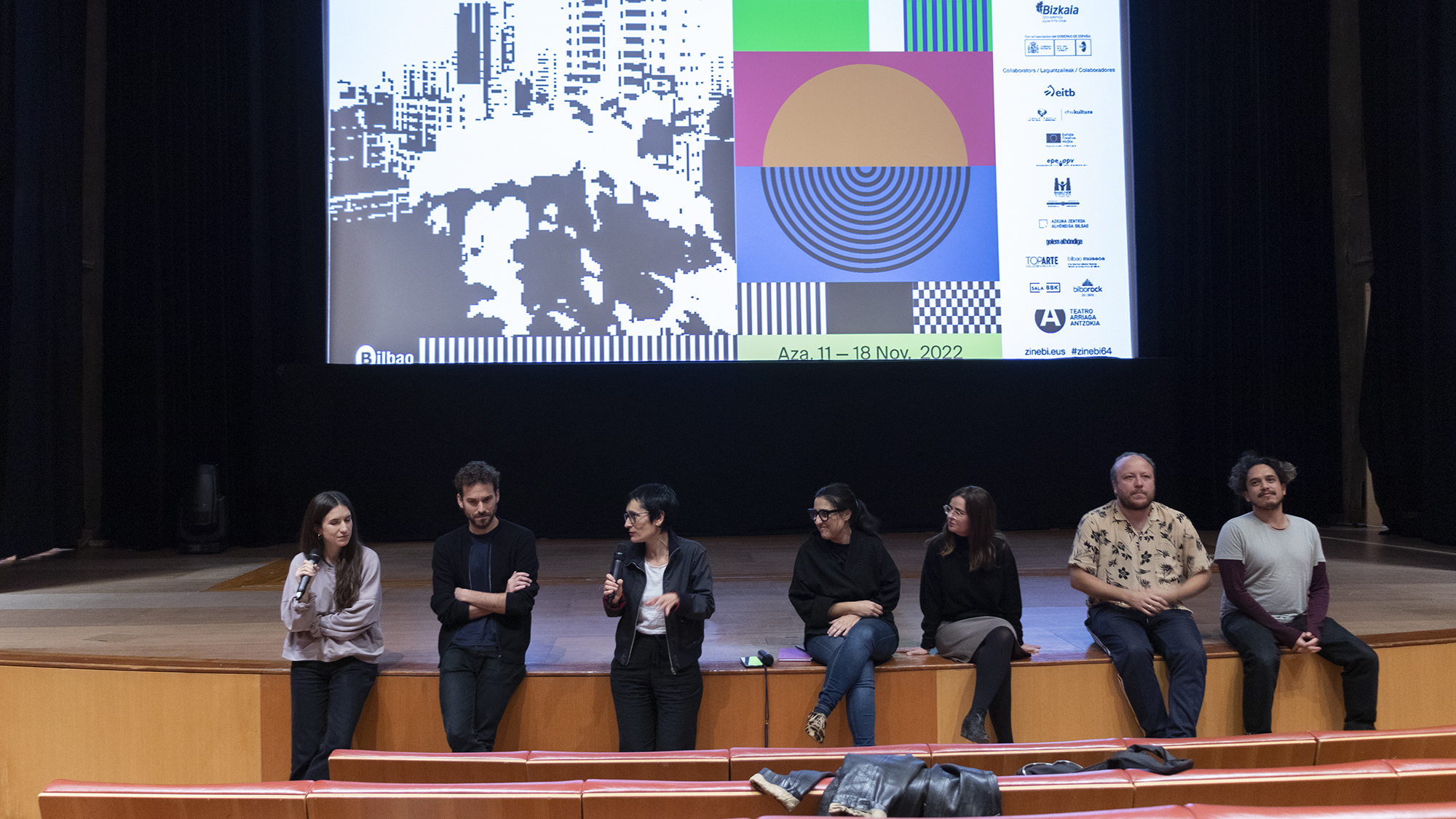Urak dakar, Urak dakar - Film programme
URAK DAKAR. FILM PROGRAMME IN ZINEBI 64
by
Urak dakar film programme. In collaboration with Zinebi 64, International Festival of Documentary and Short Film of Bilbao.
Date: 2022/11/16
Venue: Auditorium of the Guggenheim Bilbao Museum
Ticket: 5 €
FILM PROGRAMME
5:00 pm
A la vuelta del grito (Colectivo Cine de Clase, Helena Lumbreras- Mariano Lisa, 1976-1978, 40’)
Handsworth Songs (John Akomfrah, Black Audio Film Collective, 1986, 61’)
7:00 pm
Territories (Isaac Julien and Sankofa Film and Video Collective, 1984, 25’)
Euritan (Irati Gorostidi, Arantza Santesteban, 2017, 20’)
Serpent Rain (Arjuna Neuman, Denise Ferreira da Silva, 2016, 30’)
URAK DAKAR FILM PROGRAMME
Urak dakar (Water carries) is the new edition of the Bulegoa z/b programme Space is the Place / The Place is Space. Begun in 2018, the programme title paraphrases the 1974 Afrofuturist film by Sun Ra.
The autumn programme of Urak dakar comprises a series of screenings hosted by the Zinebi 64 film festival at the Auditorium of the Guggenheim Bilbao Museum (16 November) and a number of encounters at Bizkaia Aretoa-UPV/EHU (18–19 November). It takes its inspiration from the Afrofuturist strategy of using fiction as a tool to disrupt temporalities to make way for new readings of history.
The film programme and encounters tackle issues such as the structural violence of capitalism and its colonial past, or the potential of memory and collective action. Both events will take place at Abandoibarra, an urban area whose industrial past has been erased and substituted for the shining surfaces of new buildings. We wanted to make the most of this circumstance to try to think in situ, in the space and about the place.
The film programme’s five documentaries are from different times and geographical contexts, but share a similar consideration of film as a critical tool and means of expressing unease and specific concerns.
SYNOPSIS
A la vuelta del grito (Colectivo Cine de Clase, Helena Lumbreras- Mariano Lisa, 1976-1978, 40’)
A film showing the formation of a trade union. Mid-crisis, the employees of MEGESA (Sevilla), Battenfeld, Fisam, Eursotil, Roselson (Barcelona) and Babcock & Wilcox (Bizkaia) give their testimony. The economic crisis leads to redundancies, closure of factories, and layoffs. The trade unions emerge, but the agreements they reach with the Spanish government do not satisfy the workers. Assemblies, marches, traffic-stops and calls for solidarity assail the country, and the first general strike since the death of Franco is organised in the Basque Country (…). [Mostra Internacional de Films de Dones de Barcelona]
Handsworth Songs (John Akomfrah, Black Audio Film Collective, 1986, 58’33’’, 16mm, film transferred to video, sound)
A film essay on race and civil disorder in 1980s Britain and the inner city riots of 1985, Handsworth Songs takes as its point of departure the civil disturbances of September and October 1985 in the Birmingham district of Handsworth and in the urban centres of London. Running throughout the film is the idea that the riots were the outcome of a protracted suppression by British society of black presence. The film portrays civil disorder as an opening onto a secret history of dissatisfaction that is connected to the national drama of industrial decline. [Smoking Dogs Films]
Territories (Isaac Julien, Sankofa Video and Film Collective, 1984, 25’45”, 16mm film, colour, sound)
Isaac Julien’s Territories uses experimental forms to look at life in Britain in 1984, focusing on the experience of the Black British. The film recognises that the different power dynamics that determine this experience are difficult to reduce to straightforward explanations and instead uses the term ‘territories’ to reflect the multiple agendas and experiences at work. These agendas – or ‘territories’ – involve race, class and sexuality. [Will Fowler for BFI Screen-online]
Euritan (Irati Gorostidi, Arantza Santesteban, 2017, 20’)
Euritan takes a new critical look at the militant cinema of the 1960s in Europe, focussing on the disruptive potential of women in the film genre. The structure of the film is based on a reassessment of the story “Klara eta biok” (1985) by the French-Basque writer Itxaro Borda. Confronting the author with her words from the past, it aims to provide an updated critical perspective on the Basque militant identity.
Serpent Rain (Denise Ferreira da Silva & Arjuna Neuman, 30’, colour, one channel, video/installation, 2016)
Serpent Rain is as much an experiment in working together as it is a film about the future. The collaboration began with the discovery of a sunken slave ship, and an artist asking a philosopher – how do we get to the post-human without technology? And the philosopher replying – maybe we can make a film without time. The result is a video that speaks from inside the cut between slavery and resource extraction, between black lives matter and the matter of life, between the state changes of elements, timelessness and tarot. Together we ask: what becomes of the human if expressed by the elements? Serpent Rain is commissioned by Stefano Harney for The Bergen Assembly.
BIOS
Helena Lumbreras (1935-1995). Filmmaker and writer, one of the most outstanding representatives of anti-Franco militant filmmaking. Lumbreras received her professional and ideological education in Italy in the 1960s, where she came into contact with Italian leftwing cultural circles. In 1970 she founded Colectivo Cine de Clase with Mariano Lisa, to “film the dreams of people who were fighting to improve their living conditions”. The collective ceased to exist in 1978, coinciding with the dismantling of the grassroots labour movement at the start of what is known in Spain as the Transition to democracy.
Active in the UK between 1982 and 1997, the Black Audio Film Collective symbolised a radical attempt to transform education, institutions and the representation of black identity in independent film. Founded by John Akomfrah, Reece Auguiste, Lina Gopaul, Trevor Mathison, David Lawson, Edward George and Claire Joseph, the collective was a multidisciplinary team made up of film-makers, sound artists, activists, sociologists and producers, characterised by the horizontal work it distributed, along with an overhaul of realist documentary making through the display of colonial imagery originating from archive. [Museo Centro Nacional de Arte Reina Sofía , 2014]
Filmmaker and installation artist, Isaac Julien CBE RA, was born in 1960 in London, where he currently lives and works. His multi-screen film installations and photographs incorporate different artistic disciplines to create a poetic and unique visual language. His 1989 documentary-drama exploring author Langston Hughes and the Harlem Renaissance titled Looking for Langston garnered Julien a cult following while his 1991 debut feature Young Soul Rebels won the Semaine de la Critique prize at the Cannes Film Festival.
Irati Gorostidi Agirretxe (Eguesibar, 1988) is a filmmaker, currently working on her first feature film, Anekumen, selected by the SSIFF Ikusmira Berriak programme and ECAM Start Me Up, among other mentoring and market programmes. Her short film Contadores was selected for Kimuak 2022, and her project San Simón 62 was the winner of X Films, Festival Punto de Vista 2021; it premiered at the latest edition of the festival and was included in the Navarra Shortzinema catalogue. Her films have been screened at festivals internationally. She studied art and film and has been a Fulbright Scholar in New York.
Arantza Santesteban Perez (Iruña, 1979) is a historian, filmmaker and independent researcher. After completing a Degree in History at the Universidad del País Vasco, she went on to study audiovisual arts, with a Diploma in Creative Documentary making at the Francesca Bonnemaison centre, Barcelona. She is the director of several films including Passatgeres (2012), Euritan (2017), 918 GAU (2021) and Liluraren kontra (2021), and is currently reading her PhD at the Lisbon University of Fine Arts with Susana de Sousa Dias and Ana Longoni, researching themes relating filmic representation to feminism and the Basque political conflict.
Denise Ferreira da Silva is an academic and practicing artist. She is the author of Toward a Global Idea of Race (2007) and Unpayable Debt (2021) and co-editor (with Paula Chakravartty) of Race, Empire, and the Crisis of the Subprime (2013) and (with Mark Harris) of Indigenous Peoples and the Law (Routledge, 2018). Her artistic works includes the films Serpent Rain (2016), 4Waters-Deep Implicancy (2018), Soot Breath/Corpus Infinitum (2020), in collaboration with Arjuna Neuman; and the relational art practices Poethical Readings and Sensing Salon, in collaboration with Valentina Desideri.
Arjuna Neuman is an artist, filmmaker and writer, with recent presentations at CCA Glasgow; Centre Pompidou, Paris; Manifesta 10, Marseille; Showroom Gallery, London; TPW Gallery, Toronto; Forum Expanded, Berlin Berlinale; Jameel Art Centre, Dubai; Berlin Biennial 10, Germany; Serpentine, London; X Qalandia Biennial, Palestine; Gasworks, London; Bold Tendencies, London, UK; Or Gallery, Vancouver; Whitechapel Gallery, London; and Istanbul Modern, Turkey amongst others. As a writer, he has published essays in Relief Press, Into the Pines Press, The Journal for New Writing, VIA Magazine, Concord, Art Voices, Flaunt, LEAP, Hearings and e-flux.
Urak dakar is supported by the Basque Government, Diputación Foral de Bizkaia and Zinebi 64.








